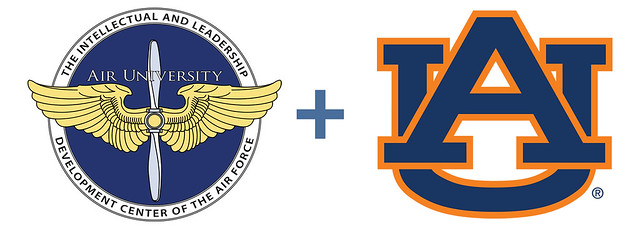Auburn University food safety experts, Air University intelligence officials chronicle impact of COVID-19 on food safety, national security
Article body
Auburn University food safety experts and Air University intelligence officials have produced a series of publications analyzing how a pandemic, like COVID-19, affects food safety and national security. The coauthors also look at future implications should another pandemic occur.
“Agriculture and food supply and safety are essential for the welfare of U.S. citizens and the economy,” said coauthor Bob Norton, professor of veterinary infectious diseases, biosecurity and public health in Auburn’s Department of Poultry Science.
The series, “Empowering Food and Agriculture to Respond as Critical Infrastructures to COVID-19 and Future Pandemics,” was produced for Auburn’s McCrary Institute for Cyber and Critical Infrastructure Security through a partnership with Air University at Maxwell Air Force Base in Montgomery, Alabama.
The McCrary Institute, based at Auburn with additional centers in Washington, D.C., and Huntsville, Alabama, focuses on cyber policy, technology, research and education. Air University is the intellectual and leadership center of the U.S. Air Force, providing education, research and outreach.
Sixteen critical infrastructure sectors—including agriculture and food—have been designated by the U.S. Cybersecurity and Infrastructure Security Agency as vital to the United States. Their weakening or destruction of any of the sectors would have a debilitating effect on security, national economic security, national public health or safety, according to the agency.
Norton and his coauthors, citing statistics from the United States Department of Agriculture, say agriculture, food and related industries contributed $1.053 trillion to U.S. gross domestic product in 2017, a 5.4-percent share. Additionally, agriculture and its related industries provide 11 percent of U.S. employment.
“A food shortage, or perceived shortage, can cause major security implications because we as people and we as a nation have no substitute for food, should it become unavailable,” Norton said.
“Panicked consumers rushed to grocery stores across the country to purchase food in fear of lockdown orders and food shortages. The public did not know what the future would bring and, therefore, bought every food and paper product thought necessary, should they too become ill or potentially not have access to, due to movement restrictions.”
The authors conclude the series by recommending the formation of a bipartisan blue-ribbon commission—consisting of experts from federal, state and local agencies, business, academia and medicine, as well as representatives from faith and civic organizations—to perform a thorough and non-partisan review of the federal, state, local and business responses to COVID-19.
Topics covered in the Auburn-Air University publications:
-
Part 2: The Pandemic Takes Hold in the Critical Infrastructures of Agriculture and Food
-
Part 3: Strategic Implications and Critical Infrastructure Vulnerabilities
-
Part 4: Gray Zones, Black Swans and Gray Rhinos – Preparing for Disruption
Publication authors:
Bob Norton, Ph.D.
Professor of Veterinary Infectious Diseases, Biosecurity and Public Health
Department of Poultry Science, Auburn University
Faculty Fellow, McCrary Institute, Auburn University
Soren Rodning, DVM
Associate Professor
Department of Animal Sciences, Auburn University
Extension Veterinarian, Alabama Cooperative Extension System
Daniel Collier
Senior Intelligence Officer
LeMay Center for Doctrine Development and Education
Air University Intelligence Directorate
Paul Nelson, M.D., Col, USAF, MC, CFS
Department of International Security Studies, Air War College
Former Surgeon General's Chair to Air University
Nathan Simmons
National Security and Disaster Planning and Response Researcher
Emefa Monu, Ph.D.
Assistant Professor of Food Safety
Department of Poultry Science, Auburn University
Dianna Bourassa, Ph.D.
Assistant Professor and Extension Specialist
Department of Poultry Science, Auburn University
Related Media
Media interested in this story can contact Communications Director Preston Sparks at (334) 844-9999 or preston.sparks@auburn.edu.
Auburn University is a nationally ranked land grant institution recognized for its commitment to world-class scholarship, interdisciplinary research with an elite, top-tier Carnegie R1 classification, life-changing outreach with Carnegie’s Community Engagement designation and an undergraduate education experience second to none. Auburn is home to more than 30,000 students, and its faculty and research partners collaborate to develop and deliver meaningful scholarship, science and technology-based advancements that meet pressing regional, national and global needs. Auburn’s commitment to active student engagement, professional success and public/private partnership drives a growing reputation for outreach and extension that delivers broad economic, health and societal impact.





